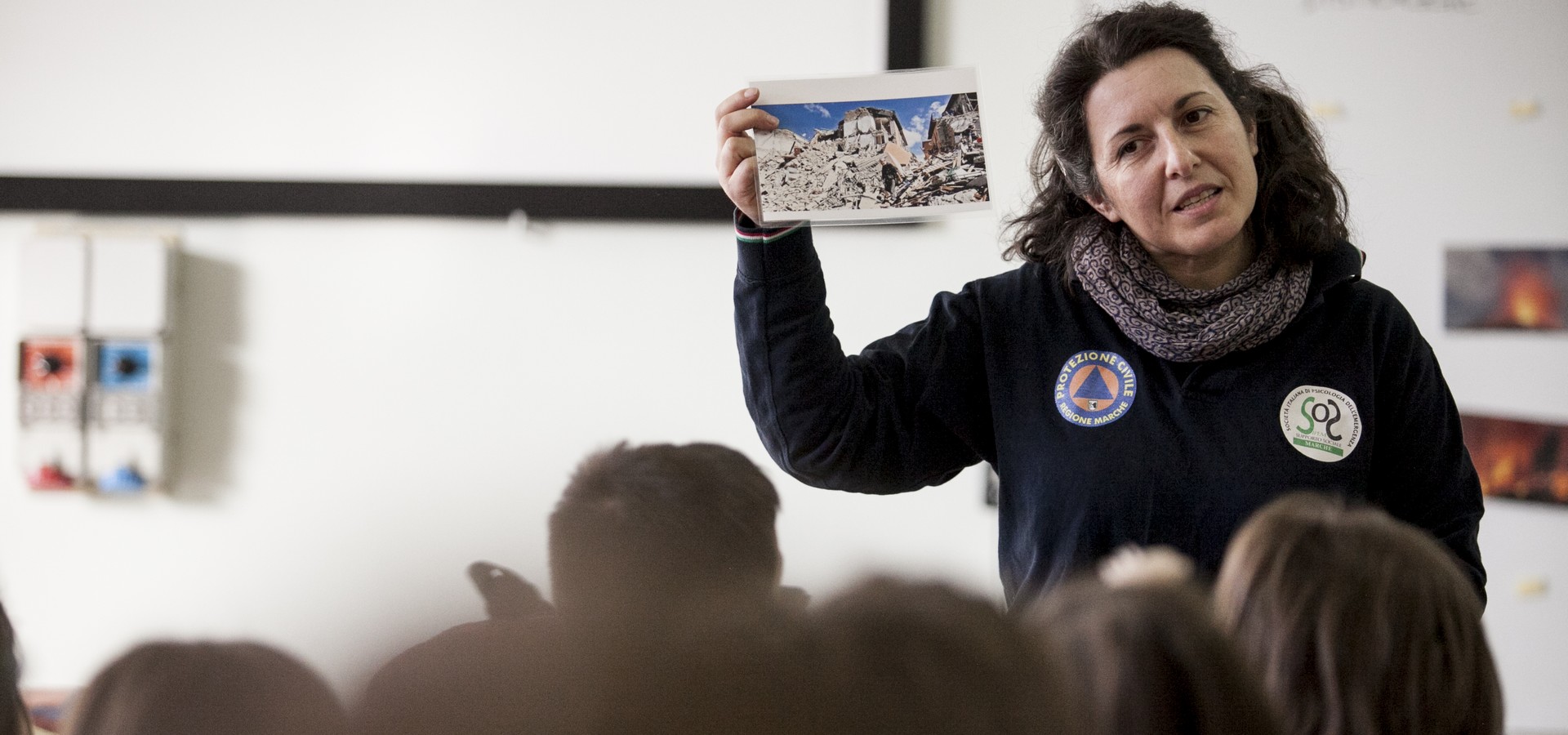Cesvi operates in various countries in the world, responding to natural or man made humanitarian emergencies.
Since 2012, after the earthquake in Emilia, Cesvi has been involved in the promotion of post emergency operations in Italy too.
The emergency in our country results from the effect of natural phenomena which have recently caused serious damage in the areas affected, bringing communities to their knees. Such as the earthquake that struck central Italy on August 24th 2016, or the repeated floods that have afflicted Sardinia in recent years.
There are two key words in these cases. The first is resilience, that is the capacity to overcome critical situations and emerge strengthened having developed internal and external resources to respond to the emergency. It is the ability that individuals and communities may already possess or develop in the face of traumatic events, and which is inherent in natural ecosystems. This is the approach that Cesvi takes in post emergency situations to help populations become protagonists of their own personal reconstruction.
The second key word is, in fact, reconstruction. Not just material, but also of social networks, relationships, productive activities. It is a case of putting together, with the communities, a solid base from which to start again with strength and determination.
With these premises in mind Cesvi has got busy in response to the earthquake in Central Italy in two main directions: psychosocial support to the vulnerable segments of the communities through the prevention of psychological damage and the triggering of resilience mechanism for minors, teachers and parents; a prop in the restarting means of production, support to breeders in the area of Amatrice.
Resilience applies not only to people but to the territories damaged by catastrophic events. The project of restoring the ecosystem in the Rio Mogoro Basin, an area severely tested by the floods that struck Sardinia in November 2013, pivots around the concept of environmental resilience. The aim is to build a capacity for resilience to safeguard the ecological equilibrium and prevent further hydro-geological collapse following extreme meteorological conditions.
Beyond the earthquake

Danilo Viozzi is 52 years old and is vice mayor of Servigliano, a small town in the province of Fermo struck by the earthquake of August 24th 2016. He has two children, a girl in high school and a boy in secondary school.
His son’s class was among those that took part in the project “A Resilient School”, promoted by Cesvi in collaboration with Sipem SoS Marche. “No-one can remain aloof about the earthquake, and the children can feel that: they feel the adults’ anxiety and fear” Danilo tells us when talking about his son. “Taking part in the meetings has brought his emotions and reactions back to normal: he was amazed when the psychologist told him that if he feels like crying then he must cry. And I told him that it’s true, if he wants to cry he must”.
The project has opened up a dialogue between teachers, children and their parents on the importance of working through the trauma of the earthquake, and to give voice to both adult’s and children’s sensations, in order to develop a personal capacity for resilience and set in motion a communal process of reconstruction and return to a normal everyday life.
